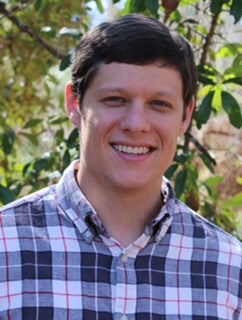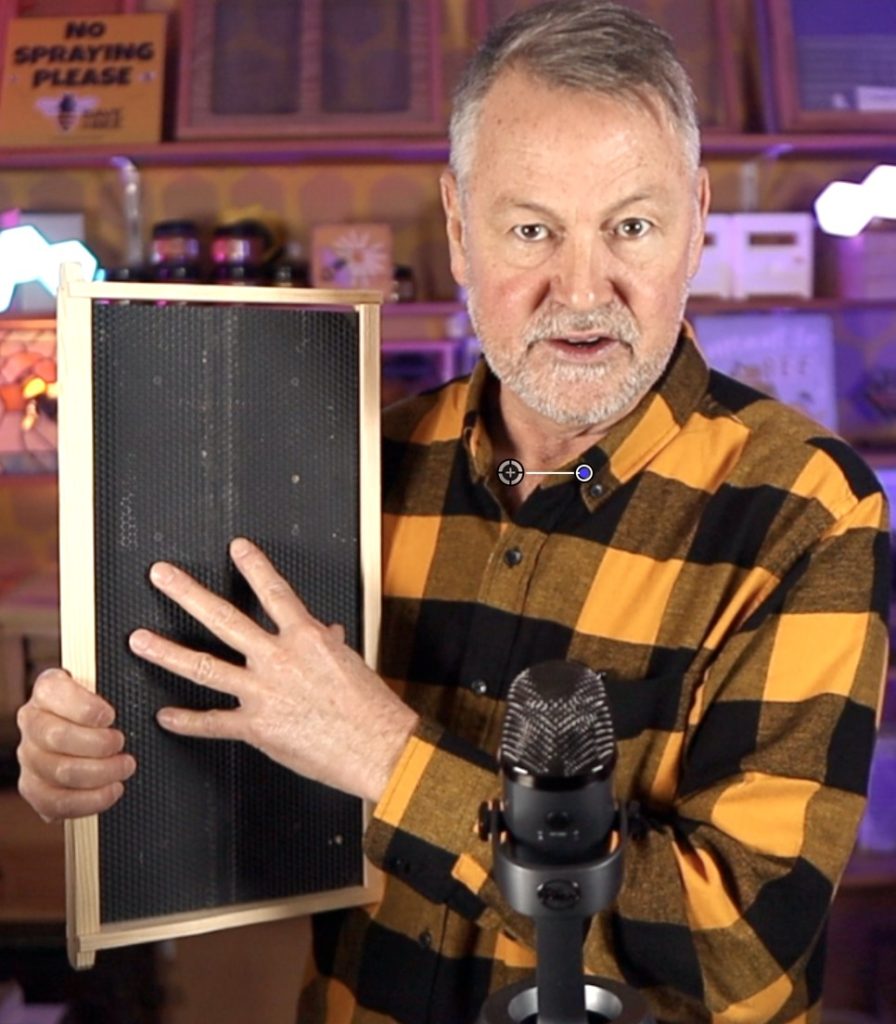WHERE: RECORDING AVAILABLE!
You must be logged in to view the recording.
Please login and return to this page to access the view button. Thanks!
WATCH OUR MEETING - LEARN SOMETHING NEW!
CAMERON JACK will present two talks:
+ Principles of Integrated Pest Management (IPM)
- Specific examples of Varroa and Small Hive Beetle (SHB) management
- How IPM fits your honey bee management regimen
- How IPM can be PROFITABLE for you
+ Cameron's Own Research To Fight Varroa
- How Cameron screens new chemicals against Varroa
- Why finding treatments is so difficult
- What doe the future hold for research
DAVID BURNS will present two talks:
+ Honey Bee Nutrition Through The Seasons
- Feeding specifically to obtain specific behaviors
- How to avoid the dangers of protein deprivation
- The critical season to feed bees
+ Preparing For Spring Management
- Feeding in late winter and early spring
- Swarm prevention
- Making Splits
BIO for Cameron Jack:
Cameron Jack grew up in a small rural farm town called Logandale, NV, just outside of the lights and glitter of Las Vegas. His Grandpa was a high school principal, but supplemented his income through beekeeping, managing about 150 hives for honey production and pollination. Cameron grew up around honey bees and beekeeping, often helping his grandfather with hive inspections and honey extraction. He obtained his B.S. degree in biology from Southern Utah University in 2012 and completed his Master’s degree at Oregon State University under the mentorship of Dr. Ramesh Sagili in 2015. There he conducted research on the honey bee gut pathogen Nosema ceranae. He then traveled across the country to pursue a Ph.D. at the University of Florida under the mentorship of Dr. Jamie Ellis where he began investigating methods to control the devastating pest Varroa destructor.

In 2018, Cameron was hired on as a teaching faculty at the University of Florida’s Entomology and Nematology Department. In the past three years, he has been obsessed with creating a premier educational program that prepares students for the many challenges associated with beekeeping and to train those interested in entering the beekeeping workforce. Cameron currently teaches seven honey bee-related courses and is now creating an online beekeeping certificate program. In the summer of 2021, transitioned into an Assistant Professor position focusing on Honey Bee Toxicology.
Most recently his projects have involved studying the efficacies of different chemical treatments to Varroa in field trials. Notably, his work on oxalic acid vaporization has been of interest to beekeepers around the world. He is also involved in a large-scale collaborative project screening a wide variety of untested chemicals for their toxicity towards Varroa and their effect on honey bees. As often as possible, Cameron tries to support undergraduate and graduate students with their research questions and helps them conduct meaningful studies that contribute to the overall scientific body of knowledge.
BIO for David Burns:

David Burns began beekeeping in 1994 after hiving a swarm from a fallen tree. After moving those hives from Ohio to Illinois, the hives were lost due to mites, and the yard had to be started all over again. In the beginning the Burns family just sold honey, but as time went on and the yard became bigger, the Burns family began building their own hives and selling them to other beekeepers. Knowing that the success of beekeepers was all dependent upon education, David began blogging and uploading videos to YouTube. In order to make sure beekeepers had the best and latest of scientific information on bees and beekeeping, David took several years to become a Certified Master Beekeeper. A graduate of Lincoln Christian University, and now a Master Beekeeper through the Eastern Apicultural Society since 2010, workshops on beekeeping are taught all year at the Training Center in Fairmount, IL. He also has a mentorship program, talks throughout the country at beekeeping association meetings, and heard frequently on radio shows and podcasts. He is also a competitive sportsman and competes throughout the US.
AGENDA
| 9:00 AM | Welcome | Fred Smith, MSBA President |
| 9:15 AM | Apiary Inspectors Report | Cybil Preston, Chief MD Apiary Inspector |
| 9:30 AM | Preparing for Spring Management | David Burns, EAS Master Beekeeper honeybeesonline.com |
| 10:30 AM | Break | |
| 11:00 AM | A Comprehensive Overview of IPM | Cameron Jack, University of Florida |
| 12 Noon | Lunch | |
| 1:00 PM | Screening New Chemicals for Varroa Control | Cameron Jack, University of Florida |
| 2:00 PM 2:20 PM |
UMD Bee Squad Update Sentinel Hive Program Update |
Mark Dykes, University of Maryland Nathalie Steinhauer, UMD vanEngelsdorp Lab |
| 2:50 PM | Break | |
| 3:05 PM | Honey bee Nutrition Through the Seasons | David Burns, EAS Master Beekeeper honeybeesonline.com |
| 4:00 PM | Closing Questions and Answers | Fred Smith, MSBA President |

